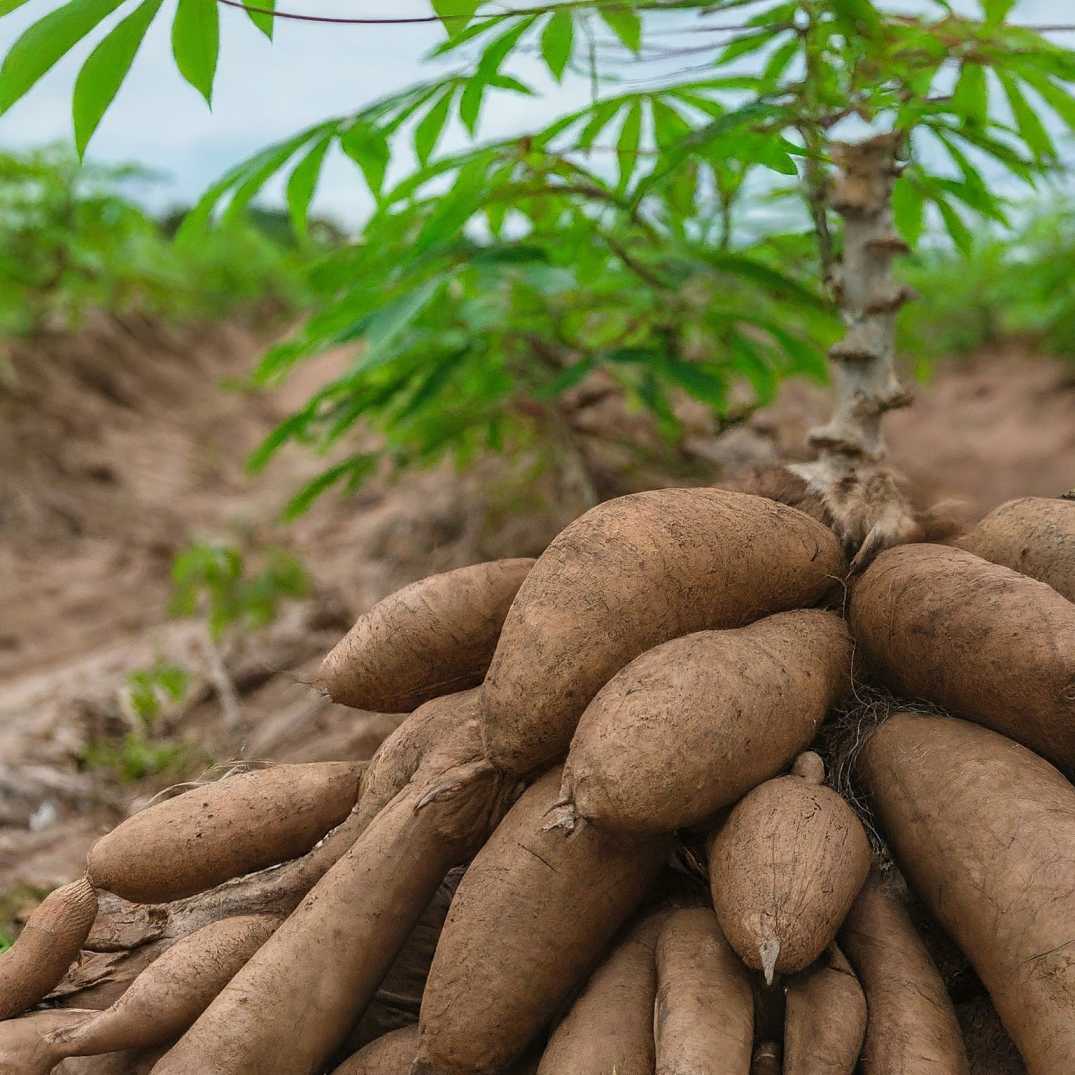Cassava is a vital crop in Nigeria, with immense economic growth and food security potential. However, the cassava market system faces challenges, including inefficiencies, lack of access to markets, and limited value addition. Hence, the cassava market system development is a strategy deployed to strengthen the market systems from cassava production through the value chain processes amongst the market actors. This approach emphasizes the bond between the various market actors in cassava production such as the Input companies, Agro dealers, Farm service providers, aggregators, and processors.
Background Summary of Cassava in the Niger-Delta
Nigeria ranks as the world’s leading producer of cassava, with an average annual output of approximately 35 million metric tons over the past five years. The Niger Delta region significantly contributes to this production, accounting for about one-third (1/3) of the nation’s total cassava production. In this region, cassava cultivation, processing, and marketing are prevalent activities, which engage or involve small, medium, and large-scale stakeholders.
Cassava serves as a vital crop for the rural poor in the Niger Delta, with over 80% relying on it as a primary source of food (sustenance), income, and employment. Given its widespread potential, cassava presents a substantial opportunity to improve the livelihoods of low-income farmers, processors, and their families, thereby increasing food security in (within) the region.
PIND Market System Development Project
This aims to enhance the productivity of farmers and small enterprises in the Niger Delta’s key agricultural sectors, thereby increasing their income, economic growth and reducing poverty. The project’s main goal is to discover and implement opportunities for growth in agriculture that align with the region’s youth unemployment and skills gaps.
To further amplify its impact or expand these valuable efforts, the project seeks to:
- Identify high-potential agricultural market systems for job creation
- Develop targeted interventions to address market failures and weaknesses
- Document best practices and lessons learned to inform future initiatives
Through its partnerships with various stakeholders like CARA and market actors, PIND has implemented economic development initiatives across five agricultural value chains (aquaculture, cassava, cocoa, palm oil, and poultry) and Micro, Small and Medium Enterprises (MSMEs). These have resulted in sustainable income growth and employment opportunities for numerous men and women in the region.
Cassava Value Chain Project in Niger-Delta Regions
To identify several systematic constraints inhibiting growth in the cassava sector, the cassava value chain analysis conducted by PIND in the Niger Delta region brought about a project helping to:
- Increase cassava supply from farmers to processors through coordination between value chain actors.
- Improve the production of high-quality cassava flour by strengthening the capacity of processors.
- Promote the adoption of good agronomic practices and the use of cassava varieties that are high-yielding and disease-resistant.
- Create a more conducive regulatory environment for cassava growth by utilizing advocacy bodies.
CARA Cassava Intervention Overview
This intervention aims to increase yield, economic gain and productivity for all actors involved. CARA Development Foundation is currently in partnership with PIND Foundation and providing technical support, and linkages through several partnerships that have been established across the Niger Delta Region of Nigeria.
The core activities of this intervention are capacity building on climate-smart Agriculture, and facilitation of linkage to access quality and high-yielding agricultural inputs, practices and technologies. This year, we will facilitate the capacity building of 15,000 farmers, linkage with 7 agro-input companies, 70 agro-dealers, 30 cassava seed entrepreneurs and at least 1 high-volume processor in each intervention state.
Cassava Intervention Aim
To enable smallholder cassava farmers to increase their yield, earn more income and create job opportunities by employing other people in their cassava business. Our operations have been from 2016 to date on the agricultural value chain with emphasis on cassava; using the market systems development strategy across the nine (9) Niger Delta States.
Our Cassava Value Chain Approach:
The Niger-delta region has an average cassava yield of 8 tons/ha, which is low compared to the other areas producing 25-30 tons/ha. Hence we co-facilitate with PIND by working with Agro-dealers or Farm Service Providers (Input Firms) and Lead Farmers to help cassava farmers to achieve 25-30 tons/ha:
- Learn and adopt Good Agronomic Practices to increase their yield.
- Access quality agro-inputs and farm management services.
- Provide linkages among the cassava market actors.
Results of the Cassava Intervention:
CARA has therefore linked 96,438 direct and 289,314 indirect smallholder farmers to 1259 agro service providers to acquire demonstrable skills in good agronomic practices, access quality inputs and seeds, thereby increasing crop yield of cassava especially from 8-11 tonnes per hectare to 25-35 tonnes per hectare in 600+ communities across nine Niger Delta states in Nigeria.
The increase in yield led to increased productivity and the opportunity to access markets to increase income in the communities where CARA facilitates market systems development in the agricultural value chain, while gender equality cuts across all programs, CARA mainstreams safe motherhood programs for women of reproductive ages (15-49 years) and life skills programs for in-school adolescents to promote informed decisions by young people.
Strategic Objective and Key Actions
To promote sustainable agriculture for increased access to adequate food and other resources in our communities through:
- Sensitization and outreaches on achieving sustainable agriculture and food security
- Annual Summit on Sustainable Agriculture and Food Security
- Training and demonstrations on sustainable agricultural practices for smallholder farmers, commodity associations, and community clusters.
- Linkages to quality agro inputs and services, financial inclusion, and markets.
- Technical sessions with decision-makers on food security policies and implementation
- Advocacy for enabling environment and investment in agricultural development
Outcomes and Conclusion on MSD
Through awareness, capacity building and advocacy, CARA Development Foundation is still in the bid to achieve this:
- Increased knowledge about citizens’ role in sustainable agriculture and food security.
- Strategies developed by stakeholders to address overarching challenges in sustainable agriculture and food security.
- Enhanced performance of agricultural value chains of production, processing, packaging, storage and markets.
- Functional linkages across the agricultural value chains.
- Increased consideration and implementation of policies on agriculture and food security.
- Increased implementation of the policies.
- Increased public and private investment into agricultural value chains.


